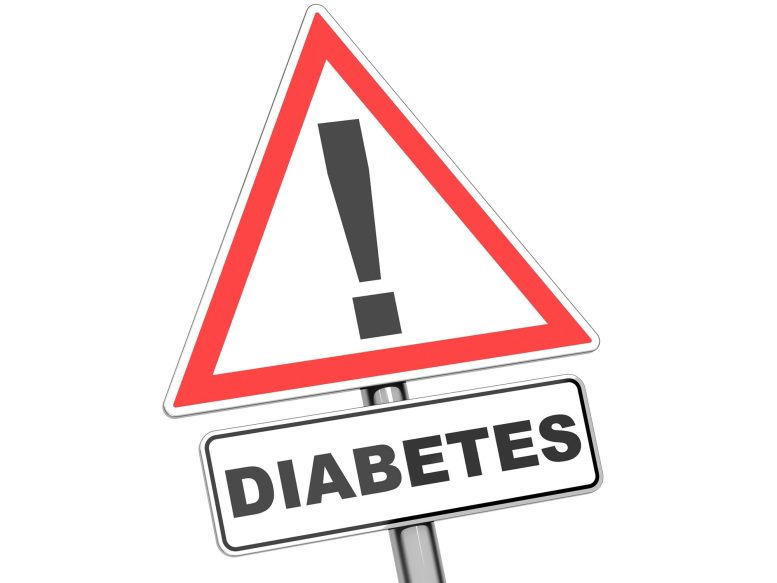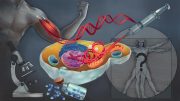
Diagnosing diabetes early is important since it can negatively affect every organ in your body from your kidneys to your heart. One in two people with diabetes dies of cardiovascular disease, showing the impact diabetes has on heart health.
You might be familiar with some of the most common symptoms of diabetes, like increased thirst, urinating more often, increased appetite, and weight changes. However, some signs of diabetes are more subtle, and you might easily miss them. Here are some less obvious signs of diabetes you should know about.
Slow Healing Wounds and Skin Changes
If you notice that cuts or sores take longer than usual to heal, this could be a sign of diabetes. Poor wound healing is a common problem among diabetes patients. It can be a result of many factors, including high blood sugar levels, nerve damage, and poor circulation. In addition, high blood sugar levels can impair the body’s ability to heal wounds.
You might also notice changes in how your skin feels. If you have diabetes, your skin may feel dry or rough. You might even see cracks or fissures forming in your skin. According to diabetestalk.net, more than 80% of people with diabetes develop severely dry skin, leading to painful fissures and cracks.
Yeast Infections
One of the first signs of diabetes in women may be frequent vaginal yeast infections. Yeast infections are more common in diabetics due to increased blood sugar levels.
Yeast infections are caused by a fungus called Candida albicans that lives in your mouth, gastrointestinal tract, and vagina. The fungus resides in a healthy balance with other bacteria and other microorganisms.
But when the balance is disturbed, by changes in immunity or high blood sugar, you may develop a yeast infection. Yeast infections can occur in any area that’s warm and moist including under the armpits and within body folds.
A healthy immune system can usually fight off a yeast infection on its own, but if you have diabetes and your immune system isn’t working well, you might need an antifungal medication. Check with your physician if you have frequent yeast infections.
Blurry Vision
Blurry vision may be an early sign of diabetes even if you don’t have other diabetes symptoms, such as frequent urination or extreme thirst. There’s even evidence that visual damage begins during the prediabetic stage when blood sugars are not yet in the diabetic range.
Diabetes can cause blurred vision by damaging the blood vessels that supply oxygen to the retina, the light-sensitive tissue that lines the back of the eye. This leads to a condition called diabetic retinopathy in which new vessels that are leaky form on the retina. Blurry vision can have a variety of causes and may or may not be related to diabetes. If you have visual changes, talk to your doctor.
Brain Fog and Difficulty Focusing
Brain fog is a term that describes mental confusion, forgetfulness, and difficulty concentrating. Foggy thinking can be caused by stress, lack of sleep, other health issues, or certain medications — but it can also be a sign of type 2 diabetes. Diabetes can cause brain fog for various reasons. Fluctuations in blood sugar can cause anxiety or cognitive issues. Plus, diabetes damages blood vessels and reduces the delivery of oxygen and nutrients to the brain. With so many causes of brain fog, it’s important to see a doctor if you have it.
Digestive Issues
You might not think of digestive issues as related to diabetes, but they can be. High blood sugars can lead to a condition called gastroparesis where the movement of food out of the stomach and into the small intestines slows down. Common symptoms include feeling full after eating only a small amount, nausea, lack of appetite, abdominal bloating, and flatulence.
Diabetes is one of the most common causes of gastroparesis. It’s more common in type 1 diabetics, affecting around 5% of type 1 diabetics, but also around 1% of type 2 diabetics. If you’re experiencing unexplained digestive issues, check with your physician and ask them to check a fasting blood glucose level.
Conclusion
Diabetes is a chronic disease that can be managed with proper treatment and lifestyle changes. Know the signs of diabetes and if you have any of these signs or symptoms, see your healthcare provider. Early diagnosis is important, so you can make the changes necessary to manage your condition and avoid diabetic complications.
References:
- “Why Diabetes Causes Dry Skin | DiabetesTalk.Net.” 29 November 2017, diabetestalk.net/diabetes/why-diabetes-causes-dry-skin.
- “Diabetes and Your Heart | CDC – Centers for Disease Control and Prevention.” 20 June 2022, cdc.gov/diabetes/library/features/diabetes-and-heart.html.
- “Diabetes and Heart Disease | Johns Hopkins Medicine.” hopkinsmedicine.org/health/conditions-and-diseases/diabetes/diabetes-and-heart-disease.
- Almogbel RA, Alhussan FA, Alnasser SA, Algeffari MA. Prevalence and risk factors of gastroparesis-related symptoms among patients with type 2 diabetes. Int J Health Sci (Qassim). 2016 July;10(3):397-404. PMID: 27610063; PMCID: PMC5003583.
- “Diabetes and Yeast Infections: Is There a Link? – Healthline.” 12 April 2022, healthline.com/health/diabetes/diabetes-and-yeast-infections.
- “Brain Fog and Diabetes: What’s the Connection? – Healthline.” 21 February 2020, healthline.com/health/diabetes/brain-fog-diabetes.









Be the first to comment on "5 Lesser-Known Symptoms of Diabetes You Probably Don’t Know About"